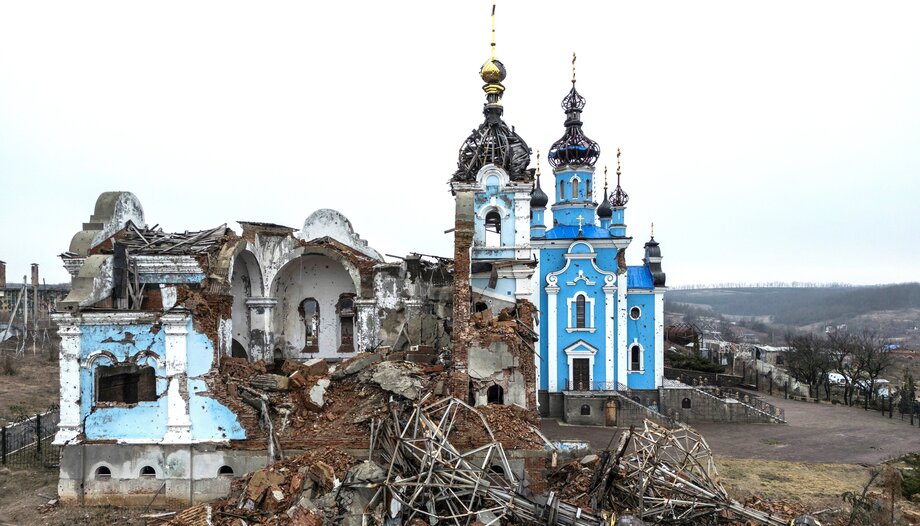August 22 is the International Day of Remembrance for Victims of Acts of Violence Based on Religion or Belief. On the occasion of the day, the Observatory against Intolerance and Discrimination against Christians in Europe (OIDAC) warns of a wave of violence against Christians.
In a communiqué sent by the Observatory, its executive director Anja Hoffmann explains that "in the West, we tend to think that violence against religious believers is mainly a problem in African and Asian countries". Despite the fact that there are many Christians in danger in those territories, he says, "we must also pay close attention to what is happening in Europe."
Hate crimes on the rise
The report 2022/2023 published by OIDAC reflects a 44 % increase in hate crimes against Christians. Almost all of these attacks take place in churches or cemeteries, however, more and more believers are being attacked.
The communiqué sent by OIDAC also notes that since the beginning of 2024, "25 cases of physical violence, threats and assassination attempts against Christians have been documented in the United Kingdom, France, Spain, Italy, Germany, Poland and Serbia."
According to the data provided by the Observatory, "a group particularly vulnerable to violence is that of Christian converts of Muslim origin". But they claim that these cases do not receive media coverage and go unnoticed in the eyes of Europeans, thus preventing people from learning about the situation.
The OIDAC report
According to data published by the Observatory, between September 2022 and August 2023, 749 anti-Christian hate crimes were committed in 30 European countries. Of these attacks 38 are assaults and, as a result, 3 Christians were killed.
The European countries at the top of the list with the highest number of attacks are Germany, Italy, France and Spain.
But crimes are not limited to physical violence. The Observatory also indicates that, through curbs on freedom of expression and LGBTIQ laws, many Christians also suffer repression for professing their faith or living according to their beliefs.
In view of all these events, OIDAC "draws attention to the unsatisfactory response of the European institutions and the poor media coverage".
The aggressors
The information gathered by the Observatory shows that most of the aggressors are members of extreme left-wing groups, radical feminists or members of the LGTBIQ collective.
In addition to these groups, Christians are also attacked by satanic sects or climate activists. However, because most crimes consist of acts of vandalism, law enforcement agencies are often unable to identify the perpetrators.
OIDAC further warns of "the normalization of attacks against churches by these groups, which sometimes even proudly claim authorship of the attacks on social networks."
Lack of resources
In its report the Observatory also notes that "the sensitivity of the issue and the limited resources and organizations dedicated to denouncing anti-Christian hate crimes lead us to believe that this issue remains underreported."
Ending violence against Christians
OIDAC concludes its report by offering some recommendations to put an end to violence against Christians. These include revising legislation that discriminates against believers and improving media coverage of hate crimes.
On the other hand, the Observatory emphasizes the need to train Christians to be able to defend their faith in an informed, firm and respectful manner, as well as to help them better understand their rights and build bridges of dialogue with people who do not share their beliefs.








